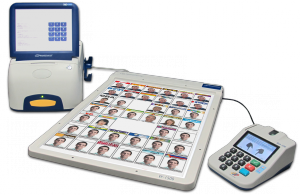Brazil, India, the United States and Venezuela are among the countries that have successfully adopted electronic voting to elect their representatives. Each day, the number of countries showing interest in modernizing their electoral platforms grows.

The provincial electoral officer for the Western Cape region of the South African Independent Electoral Commission (IEC), Courtney Sampson, said that some obstacles still needed to be overcome in the nation in order to be able to adopt electronic voting.
One important aspect is getting people used to the automation of daily tasks. Sampson said, “Some people are highly digitalized in terms of their homes and other people don’t even know what a computer looks like. I don’t think that this should necessarily be a determining factor, but I think it should be opted to people.”
Last year, the IEC attended a two-day international seminar on electronic voting. At the seminar, the pros and cons of the system were addressed and different countries shared their experiences.
The IEC’s president, Pansy Tlakula, talked about the need to consider other aspects such as vote secrecy, transparency and credibility. “In particular, we need to take into account the cross-national experiences of e-voting shared over the last two days with us and our delegates by Brazil, India, Ireland and the Philippines.”
For Sampson, an electronic voting system might not be able to bridge the gap in one of the election process’s biggest challenges: voter behavior.
Nonetheless, he believes that it “is inevitable for us to adopt electronic voting based on how quickly things have moved over the past couple of years in terms of electronics. It is also possible to have a combination of paper voting and electronic counting or electronic voting.”
Source: http://www.pa.org.za/blog/electronic-voting-platform-electoral-change